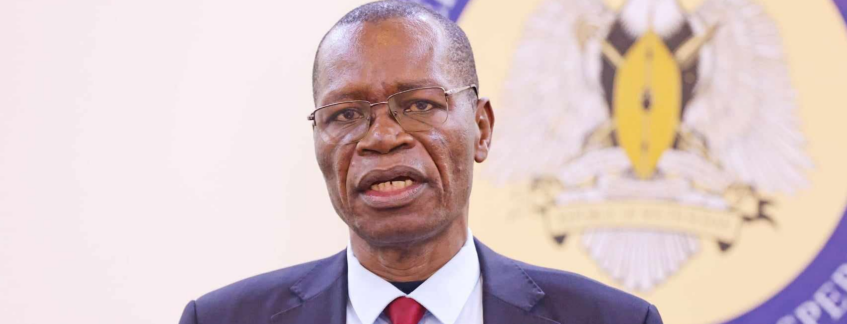South Sudan’s Minister of Presidential Affairs, Bangasi Joseph Bakosoro, said the elections should go ahead as scheduled, ruling out any plan to extend the current transitional government after the expiry of the roadmap.
Bakosoro, an ally of President Salva Kiir, made the remarks at the opening of a civic and political dialogue on the political transition in Juba on Tuesday. There is mounting pressure on South Sudan political leaders to decide on the way forward regarding the upcoming general elections.
“The United Nations said no extension, the Troika said no extension, the European Union said no extension and the IGAD said no extension. Then who are you or me to say there must be an extension again? We don’t want it,” said Bakasoro.
“The only issue is what the way forward is, which is now for you [civil society] to tell us in good faith what the way forward is. So this is the message I am bringing you,” he added.
The presidential affairs minister revealed that the parties to the 2018 peace agreement are planning to hold dialogue and discussions to decide on the way forward regarding the upcoming elections, urging the civil society to deliberate and help guide the political leaders on the way forward.
“You please discuss everything exhaustively. The general statement that we are going to elections is good, but what type of elections are we going for? You can also discuss and guide us on this. We don’t need an extension again because you and I are tired of extensions,” he said.
“If it was me, we could go for elections today because I don’t fear that I will go home. I will go home to come back again. Some people are afraid to go home. We must go home so that our people can send us back with honour and respect. That is why my real title remains governor because I got it with respect and honour. Please discuss and come up with the way forward as civil society,” he added.
Meanwhile, Dr Lam Akol Ajawin, the leader of the opposition National Democratic Movement (NDM), said the people of South Sudan are fed up with extensions of the transitional government. “As somebody who has done research, I know the South Sudanese people want elections now, not tomorrow. But at the same time, this may also be a result of the frustration of transition after transition from 2005 up to today. South Sudan has been ruled by transitional governments, that’s why the people would want to eliminate these transitions by all means.”
The South Sudanese politician emphasized that “dialogue is the only thing that will save South Sudan from quagmire and dilemma around elections.”
The end of the transitional period was scheduled for 2022 but was pushed back to December 2024 due to the lack of progress on many provisions of the 2018 peace agreement that ended a bloody five-year civil war.
As South Sudan prepares for its first-ever elections, significant concerns still exist about the absence of critical conditions for holding free, fair, secure, and credible elections.




